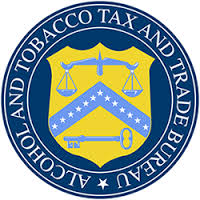Cautionary Tales for Suppliers and Distributors Playing Fast and Loose with Trade Practice Laws.
Spoiler alert. Violating trade practice laws can be expensive, both at the federal and state level. Suppliers and distributors should be cautious in the pushing the boundary in their business practices and promotional efforts. Just because everyone else seems to be doing it won’t be a defense when you are the company that is the subject of an investigation.
Both suppliers and distributors have been in the news recently for alleged trade practice violations. What’s eye catching are the large dollar amounts involved in the settlements: $300,000 and approximately $2.6 million. Amounts that make paying attention to what sometimes can appear to be laxly enforced and esoteric trade practice regulations matter. Interestingly, one settlement is at the federal level and the other at the state level.
The first example centers around the US’s largest brewery—Anheuser-Busch InBev (“InBev”) and reflects action at the federal level.
The Alcohol and Tobacco Tax and Trade Bureau (the “TTB”) recently accepted a $300,000 offer in compromise from InBev. The settlement stemmed from allegations that the company violated Federal Alcohol Administration Consignment Sales provisions under FAA Act 27 USC Section 205(d). The prohibition is drafted expansively.
More specifically, the TTB alleged that InBev violated the prohibition on alcohol suppliers and distributors from selling their products with the ability of the retailer to later return them. In the TTB’s summary of the offer in compromise, the TTB claimed that violations stemmed from A-B’s Shock Top Lemon Shandy and Shock Top Pumpkin Wheat Ale “end of season buy-back co-op programs.” The program resulted in nearly 541,000 cases being sold to wholesalers last year. For the math challenged, that breaks down to a fine of about 55 cents a case.
The second cautionary tale comes from Massachusetts.
The largest distributor of craft beers in Massachusetts entered into a settlement and will pay a fine of 2.6 million dollars to avoid a 90-day suspension of its liquor license. Such a sanction will be a record-setting penalty in the state. The basis for the sanction was that the company was caught paying retailers to stock its alcoholic beverage products.
An investigation by the Massachusetts Alcoholic Beverages Control Commission found that the distributor—Craft Brewers Guild of Everett—ran a “pay-to-play” scheme in violation of state alcohol laws for years. Its sales representatives and managers routinely gave retailers in the Boston area thousands of dollars in exchange for stocking beers from Craft Brewers Guild and keeping out products from competing wholesalers.
The company had the option of either serving a 90-day license suspension or paying a fine instead. The sanction was reportedly in the ballpark of $2.6 million. The Company is likely holding its breath for a call from the TTB.
Long story short here, while enforcement of certain trade practice prohibitions can appear to be uncommon and, thus, unlikely, the magnitude of the repercussion should be front and center when considering entering a grey area, or even a not so grey area. Further, what appears not to be an enforcement priority today can quickly become tomorrow’s top enforcement priority. Staying in compliance with state and federal law is the best practice.

